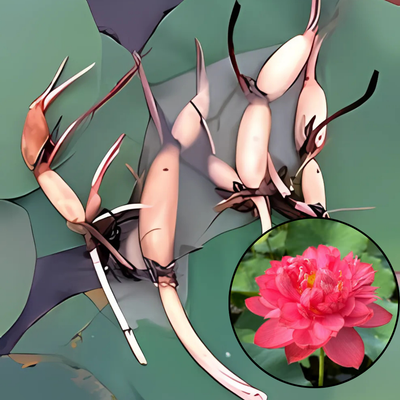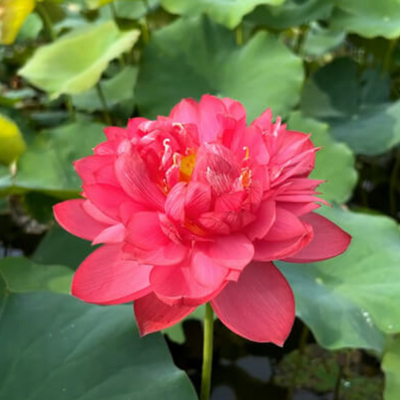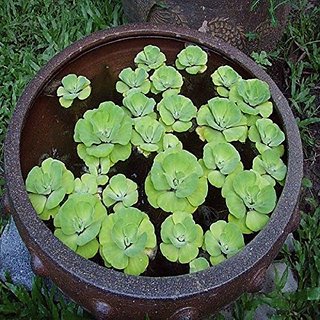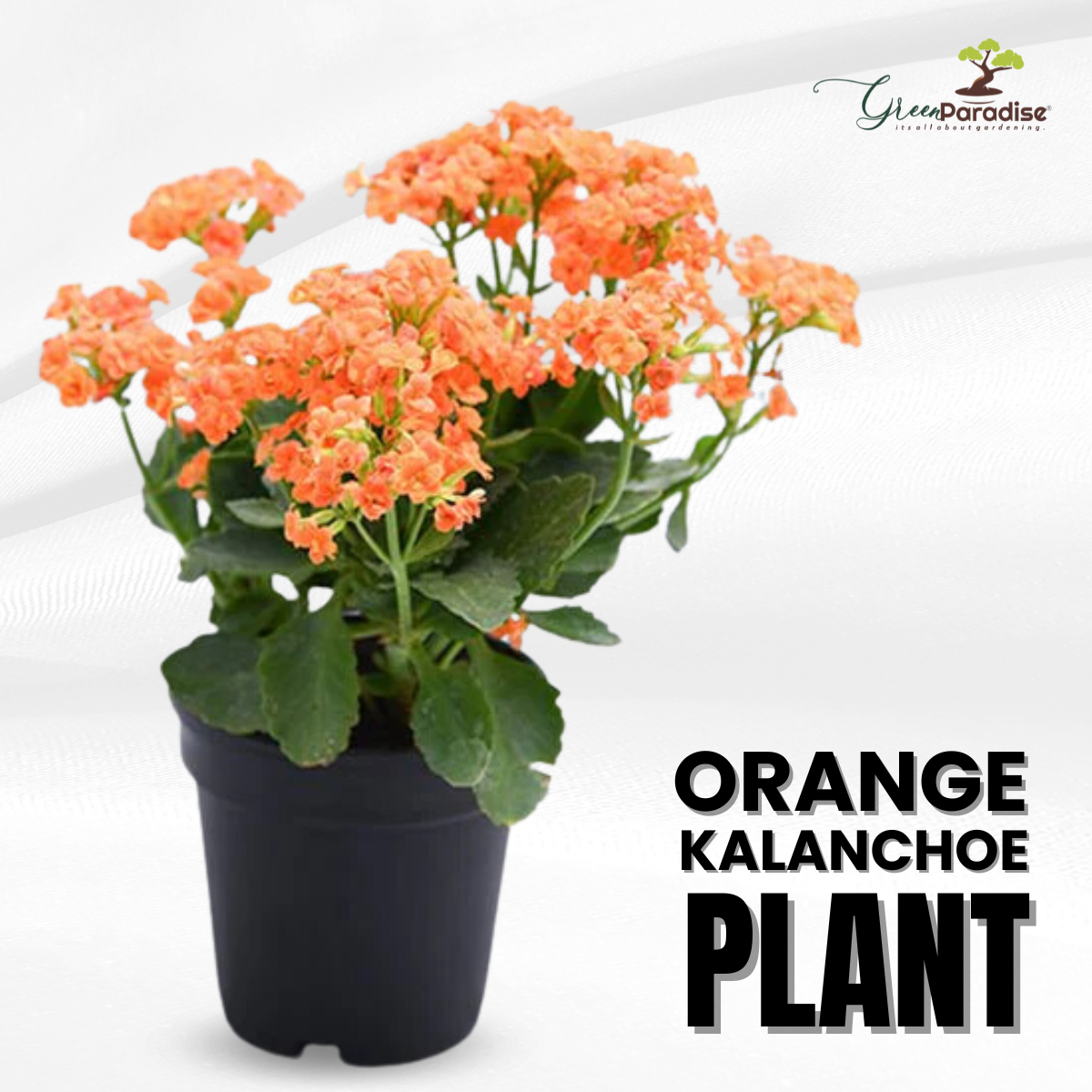
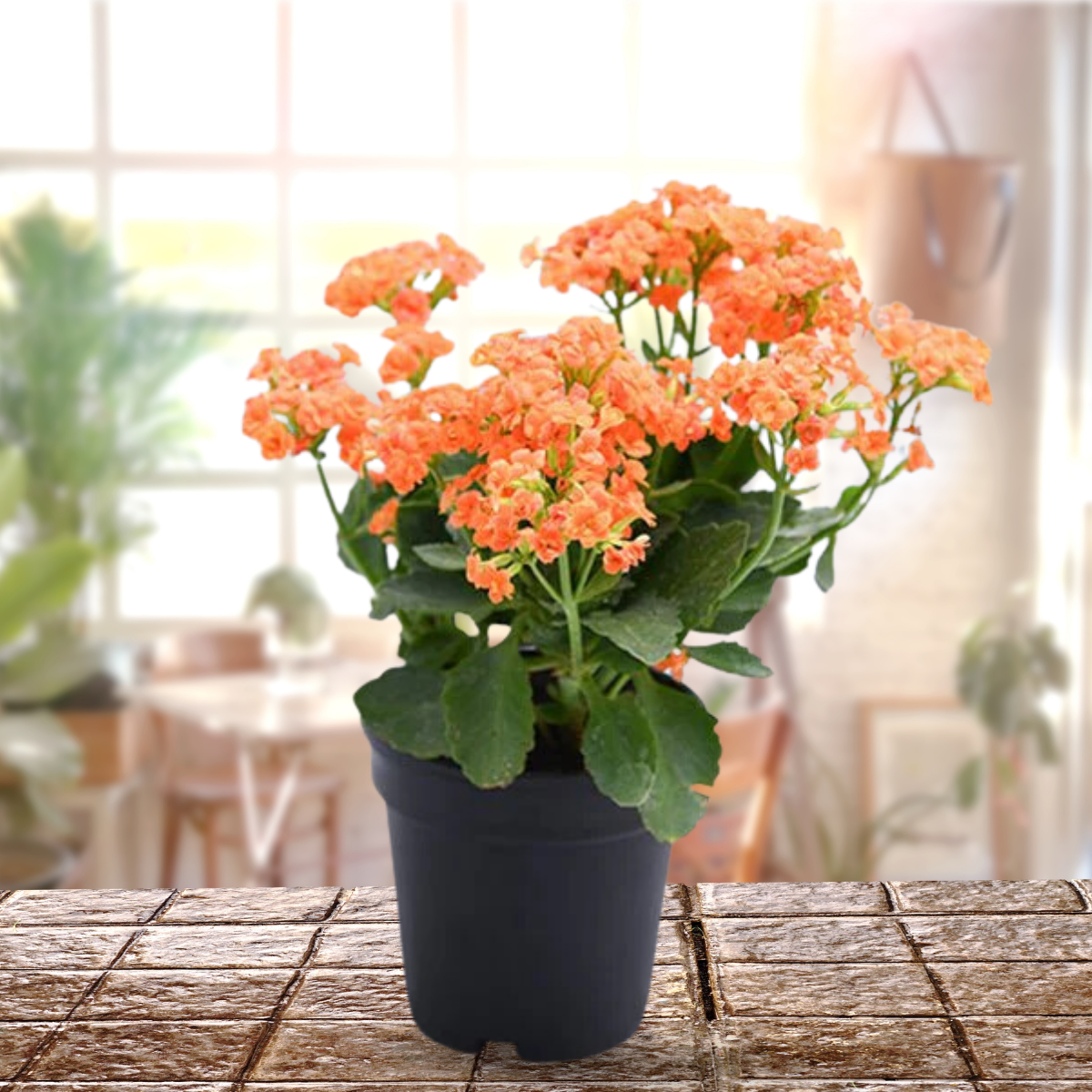
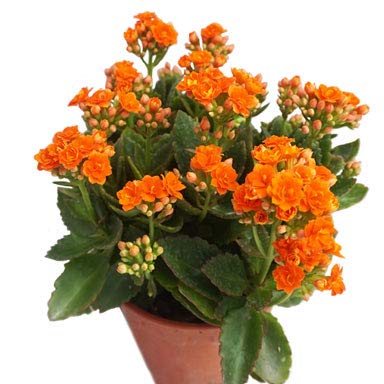
The Green Paradise Orange Kalanchoe
Plant: A Blossoming Marvel of the
Plant Kingdom
About Orange Kalanchoe Plant
Distinctive Features
- The Orange Kalanchoe is celebrated for its striking appearance.
- Its fleshy, spoon-shaped leaves form a rosette that can vary in color from deep green to vibrant yellow, depending on the species and environmental conditions.
- What truly steals the show, however, are its stunning clusters of petite, bell-shaped Orange flowers that burst forth in a glorious display of sunshine.
Caring for the Orange Kalanchoe
Here are some essential care tips:
1. Light:
2. Temperature:
3. Watering
Soil:
Fertilization:
Pruning:
Propagation:
Medicinal and Folklore Uses
- Aside from its ornamental value, some species of Kalanchoe, including the Orange Kalanchoe, are believed to have medicinal properties.
- Anecdotal reports suggest they can help with ailments such as wounds, inflammation, and respiratory issues.
- However, it's essential to consult a healthcare professional before using any plant for medicinal purposes, as some Kalanchoe species can be toxic if ingested.
Unlocking the Sunshine: A Guide on How to Grow
Orange Kalanchoe Plants
The allure of houseplants is undeniable. They bring nature indoors, adding a touch of greenery to our living spaces. Among the many choices available to plant enthusiasts, the Orange Kalanchoe stands out for its vibrant, sunshine-like blossoms. If you're looking to cultivate this charming succulent, you're in for a treat. In this guide, we'll explore the art of growing and caring for Orange Kalanchoe plants.
Choosing Your Orange Kalanchoe Plant
Before diving into the growing process, you need to find a healthy Orange Kalanchoe to bring home.
Here's what to look for when choosing your plant:
Vibrant Orange Blooms:
Opt for a plant with bright, cheerful Orange flowers. The more vibrant, the better.
Healthy Leaves:
Examine the leaves for any signs of damage, discoloration, or pests. Healthy leaves are plump and free of blemishes.
Compact Growth:
A well-shaped, compact plant is often an indicator of good health. Avoid leggy or stretched-out specimens.
Planting Your Orange Kalanchoe
Once you've selected your Orange Kalanchoe, it's time to get it into a suitable pot.
Container Choice:
Use a well-draining pot with a drainage hole at the bottom. This keeps water from pooling at the roots.
Potting Mix:
Orange Kalanchoe thrives in a well-draining succulent mix. You can also create your mix by combining potting soil with perlite or sand.
Planting Depth:
Plant your Kalanchoe at the same depth it was in its nursery pot. insure the roots are covered but not buried too deep.
Caring for Your Orange Kalanchoe
Now that your plant is in its new home, let's talk about the care it needs to flourish.
Sunlight:
Orange Kalanchoe loves bright, indirect sunlight. A few hours of morning sunlight or filtered light throughout the day will keep it happy.
Watering:
Between waterings, allow the soil to dry out.Stick your finger about an inch into the soil, and if it's dry, it's time to water. Always water the soil, not the leaves, to prevent rot.
Temperature and Humidity:
These plants prefer temperatures between 60°F to 85°F (15°C to 29°C). They're not fans of cold drafts or extreme humidity.
Fertilizing:
Feed your Orange Kalanchoe with a balanced liquid fertilizer during the growing season (spring and summer). Reduce or stop fertilizing in the downtime.
Pruning:
To encourage bushier growth, pinch back leggy stems and spent flowers.
Pest Control:
Keep an eye out for common succulent pests like mealybugs and spider diminutives. Treat infestations promptly with insecticidal soap.
Propagation
- Orange Kalanchoe can be propagated through leaf or stem cuttings.
- Simply snip a healthy leaf or stem, let it callous for a day or two, and then plant it in well-draining soil.
- Till new growth grows, keep the soil moist.

